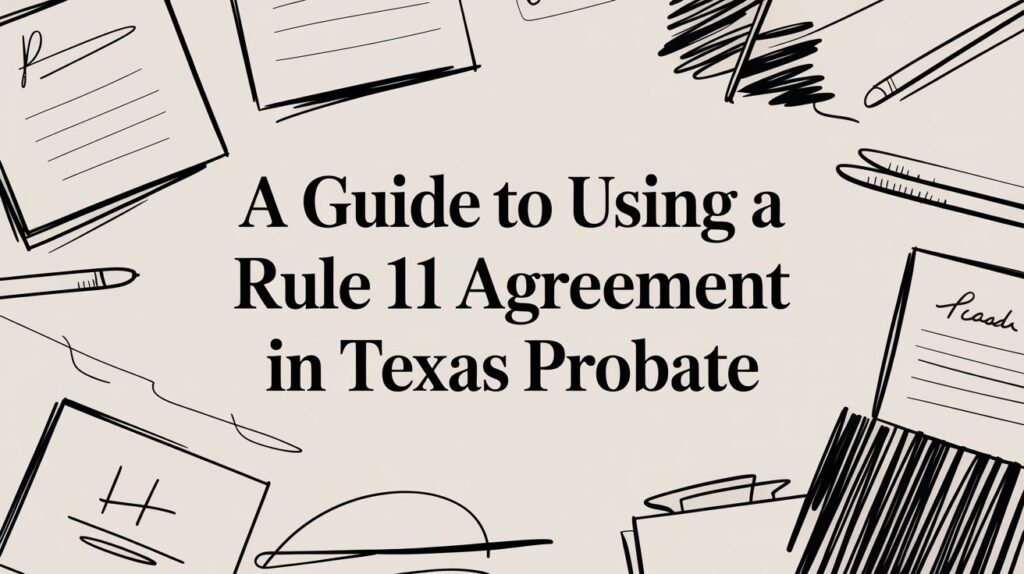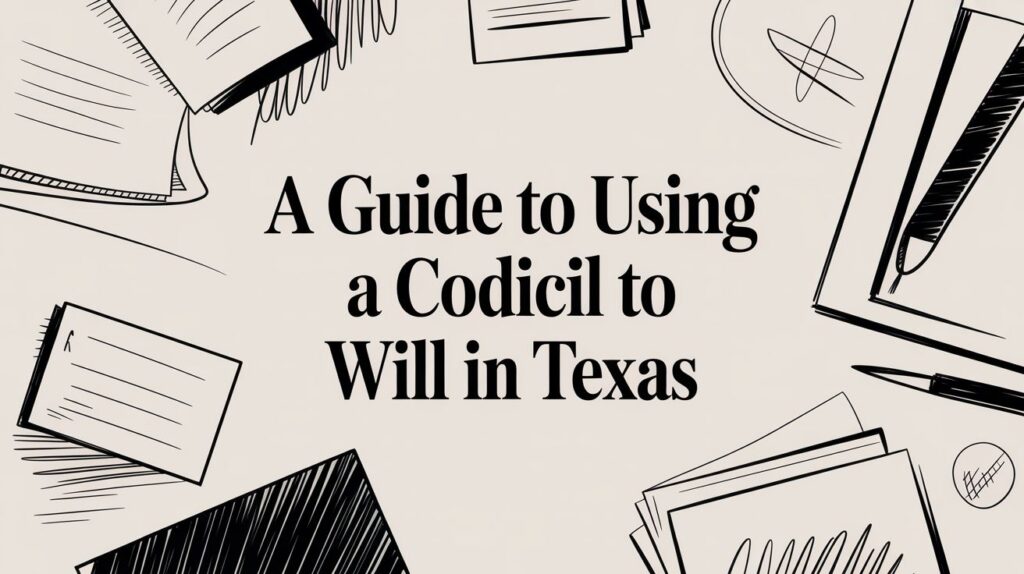Losing a loved one is difficult, and dealing with probate in Texas can add an extra layer of stress. One of the first questions that many people ask is, “How much does a probate attorney cost in Texas?” The answer depends on several factors, including the complexity of the estate, the attorney’s experience, and whether they charge a flat fee or hourly rates.
Probate is the legal process of settling a deceased person’s estate, paying off debts, and distributing assets to heirs. In Texas, the probate process can be straightforward for small estates but complex and costly for larger ones. That’s why understanding the cost of hiring a probate attorney in Texas is essential before moving forward.
This guide will break down probate attorney fees in Texas, explaining flat fees vs. hourly rates, additional costs, and how to determine if you’re paying a fair price for legal services.
Why Do You Need a Probate Attorney in Texas?
Many people wonder if they can handle probate without an attorney. While some estates qualify for simplified probate procedures, most estates in Texas go through formal probate, which involves court filings, creditor claims, and legal deadlines.
A probate attorney in Texas can help:
- File the necessary legal documents and ensure compliance with Texas probate laws.
- Represent the executor or administrator in court to avoid legal mistakes.
- Negotiate disputes between heirs or creditors.
- Guide families through complex estates that involve business assets, real estate, or large investments.
- Speed up the probate process and help avoid unnecessary delays.
Even a small mistake in probate filings can result in court rejections, extra costs, or legal disputes. That’s why hiring an experienced Texas probate attorney is often worth the investment.

How Much Does a Probate Attorney Cost in Texas?
The cost of hiring a probate attorney in Texas varies based on:
- The attorney’s experience and reputation.
- The complexity of the estate.
- The county where probate is filed.
- Whether the attorney charges a flat fee or hourly rate.
Attorneys in Texas typically charge between $250 and $500 per hour for probate cases. However, some probate attorneys offer flat fees for straightforward cases.
Flat Fees vs. Hourly Rates for a Probate Attorney in Texas
When hiring a probate attorney in Texas, you will usually encounter two main fee structures:
1. Flat Fee Probate Attorneys
Some probate attorneys charge a flat fee, meaning you pay a fixed amount for legal services, regardless of the time spent on the case.
When Do Attorneys Charge a Flat Fee?
Flat fees are typically used for simple probate cases, such as:
- Uncontested probate where no one is disputing the will.
- Small estates with minimal assets and no creditors.
- Independent administration (a less complicated probate process in Texas).
- Drafting and filing standard probate documents.

How Much Are Flat Fees for Probate Attorneys in Texas?
The flat fee for a probate attorney in Texas generally ranges from $2,500 to $5,000 for straightforward estates. However, more complex cases can cost up to $10,000 or more.
Flat fees are advantageous because they provide cost predictability. Clients know upfront how much they will pay, avoiding surprises from hourly billing.
2. Hourly Rate Probate Attorneys
Many Texas probate attorneys charge hourly rates, meaning clients are billed based on the time spent on the case.
When Do Attorneys Charge Hourly Rates?
Hourly rates are common in complex probate cases, including:
- Large estates with multiple properties, businesses, or investments.
- Contested probate where family members challenge the will.
- Probate litigation involving lawsuits or creditor disputes.
- Cases requiring extensive court hearings and legal negotiations.

How Much Are Hourly Rates for Probate Attorneys in Texas?
Most Texas probate lawyers charge between $250 and $500 per hour, depending on experience and location. In large cities like Houston, Dallas, or Austin, rates may be on the higher end.
Since probate cases can take months or even years to complete, an hourly fee structure can quickly add up. For example, a case requiring 50 hours of legal work at $300 per hour would cost $15,000 in attorney fees.
Additional Costs in Probate Cases
In addition to attorney fees, other expenses may arise during the Texas probate process, increasing the total cost of settling an estate. Many of these costs are unavoidable, but understanding them in advance can help families prepare financially and make informed decisions.
1. Court Filing Fees
Every probate case requires court filings, which typically cost between $250 and $500, depending on the county where probate is filed. These fees cover document processing, legal notices, and administrative costs, making them a standard expense in any probate case. Some counties may have higher fees for larger estates, so it is essential to check with the local probate court.
2. Executor Fees
Texas law allows executors to collect a fee, which is usually 5% of the estate’s total value as compensation for their time and effort. Executors handle complex administrative duties, including filing court documents, managing assets, and paying off debts, which justifies their entitlement to compensation. However, in some cases, executors may choose to waive their fee, especially if they are a close family member of the deceased.
3. Appraisal and Valuation Fees
If the estate includes real estate, valuable assets, or business interests, professional appraisals may be required, costing anywhere from $500 to $5,000. These appraisals ensure that assets are fairly valued before distribution to heirs or sale to settle debts. Additionally, if the estate includes art collections, jewelry, or antiques, specialized appraisers may be needed, increasing costs further.
4. Accountant or Tax Preparation Fees
Large estates often require an accountant to handle tax filings, adding $500 to $2,000 to the total cost. The IRS requires estate tax returns in some cases, especially if the estate is worth more than the federal estate tax exemption. An experienced accountant can ensure compliance with state and federal tax laws, helping executors avoid financial penalties or legal complications.
5. Mediation or Litigation Costs
If there are disputes among heirs, mediation fees may range from $3,000 to $10,000, while full litigation could exceed $50,000. Probate litigation occurs when family members contest a will, challenge an executor, or dispute asset distributions, leading to lengthy court battles. These disputes not only increase legal costs but also delay the probate process, making it critical to resolve conflicts as efficiently as possible.
How to Reduce Probate Attorney Costs in Texas
If you’re concerned about the cost of hiring a probate attorney in Texas, there are several ways to minimize expenses while ensuring the estate is settled properly. By taking proactive steps, families can significantly reduce legal fees without compromising the efficiency of the probate process.
1. Choose an Experienced Attorney Wisely
Hiring a Texas probate attorney with a strong track record can save you money in the long run. An experienced lawyer will efficiently handle court filings, estate valuations, and legal disputes, ensuring that probate proceeds smoothly and without unnecessary expenses. Inexperienced attorneys may take longer to resolve issues, leading to higher hourly fees and delays that increase overall probate costs.
2. Opt for Independent Administration
Texas offers an Independent Administration process, allowing executors to handle probate without excessive court supervision. This significantly reduces legal fees, court costs, and administrative delays, making it a cost-effective option for many estates. However, not all estates qualify for independent administration, so consulting with a Texas probate attorney is essential to determine eligibility.
3. Use a Flat Fee Attorney for Simple Cases
If the estate is small and uncontested, look for a probate attorney in Texas who offers a flat fee rather than an hourly rate. This can prevent unexpected costs and provide financial clarity from the beginning. Flat fees work best for straightforward probate cases where no litigation, creditor disputes, or complex tax issues are involved.
4. Handle Some Tasks Yourself
In some cases, the executor can manage basic administrative tasks, such as gathering financial documents, notifying creditors, and organizing estate assets, reducing the number of billable attorney hours. By taking care of these responsibilities independently, families can lower legal fees while still ensuring that complex probate matters are handled by an experienced attorney. However, it’s important to consult with a lawyer before making legal decisions to avoid potential mistakes.
Is Hiring a Probate Attorney in Texas Worth the Cost?
For many families, hiring a probate attorney in Texas is a necessary investment, ensuring the estate is properly settled without legal disputes or unnecessary delays. While the cost of probate can seem overwhelming, the benefits of hiring an experienced attorney far outweigh the risks of handling probate alone.
Probate laws are complex, and even minor mistakes can result in court rejections, increased expenses, or disputes among heirs. A skilled Texas probate attorney ensures that the process runs efficiently and legally, helping executors fulfill their duties while protecting the interests of the deceased’s beneficiaries.
Additionally, an attorney can help resolve conflicts, negotiate with creditors, and ensure that estate taxes and debts are handled correctly, avoiding future legal issues. Without proper legal guidance, executors risk personal liability, making professional legal assistance a valuable resource in the probate process.

Final Thoughts: Understanding the Cost of a Probate Attorney in Texas
So, how much does a probate attorney cost in Texas? The answer depends on whether they charge a flat fee or hourly rate, the complexity of the estate, and any additional costs involved.
- Flat fee probate attorneys usually charge between $2,500 and $5,000 for simple estates.
- Hourly rate probate attorneys charge $250 to $500 per hour, and costs can exceed $10,000 for complex cases.
- Additional fees, such as court costs, appraisals, and mediation, may increase the total cost of probate.
Hiring the right probate attorney in Texas can help save time, reduce stress, and ensure legal compliance. If you’re handling a Texas probate case, consider consulting an experienced attorney to understand your best options.








